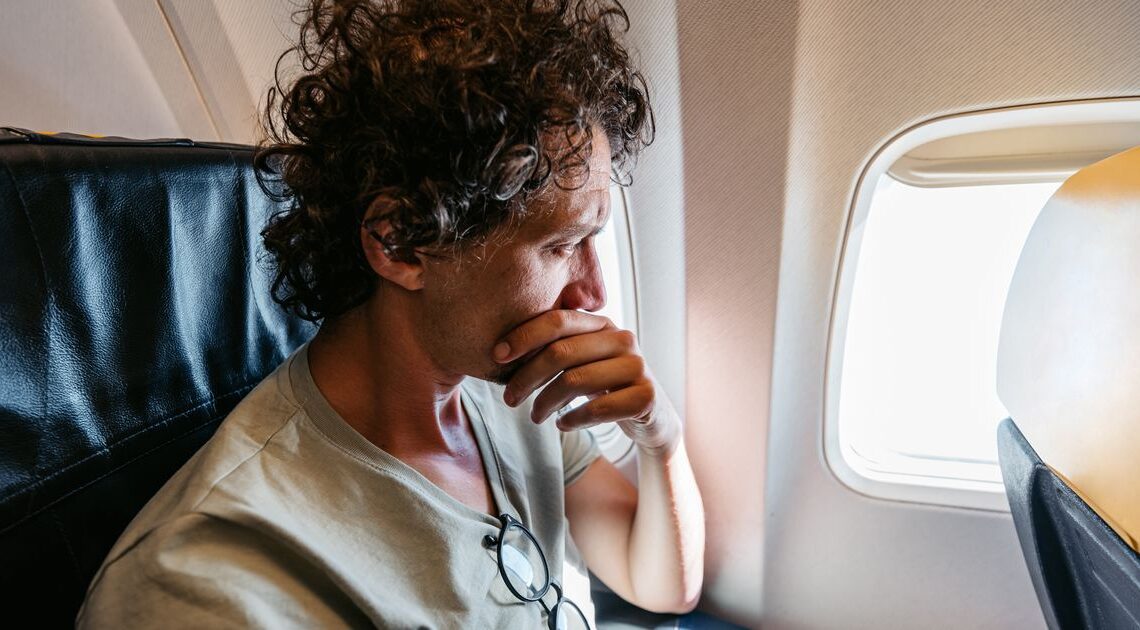It’s hard to imagine a worse place to get sick than on an airplane. But unfortunately, it happens ― in many forms.
There are a number of unpleasant and even potentially dangerous conditions that travelers can develop during a flight. Nausea, diarrhea, headaches, dizziness, congestion, blood clots, sinus infections, tinnitus — travelers may find themselves dealing with these problems once they’re in the air.
“A bad sinus infection can sometimes worsen when you fly because of the change in air pressure,” Dr. Danielle Qing, an assistant professor and internal medicine specialist at Mount Sinai, told HuffPost. “This can lead to a popping sensation in your eardrums, and in very rare instances can sometimes cause your eardrum to perforate. And then, of course, there’s motion sickness, which can look like nausea, vomiting, headaches and lightheadedness. Turbulence can make it even worse.”
Getting sick while flying can be hard to handle. As Dr. Daniel Chandler, a primary care physician at Tufts Medical Center, told HuffPost, “Airplanes are funny places because things that would be so easy to fix on the ground are more difficult to fix in the air due to a lack of resources and people to fix it.”
Still, there are steps you can take to alleviate the issue if you get sick on a plane. HuffPost asked doctors to share their advice for dealing with in-flight illnesses.
Avoid looking at screens.
“If you are experiencing motion sickness, try to avoid things that are visual like your phone or the plane TVs,” Chandler said. “Instead, sleep. But if you can’t sleep, listen to something like music, a podcast or an audiobook.”
If you’re trying to stave off nausea, he also advised against looking at the vomit bags in the seats, as that might make you feel more nauseous.
“Stare at the horizon if you are in a window seat,” Dr. Rabia De Latour, a gastroenterologist and assistant professor of medicine at NYU Grossman School of Medicine, said. She also recommended avoiding unnecessarily moving your head.
Qing offered similar advice in the event of dizziness.
“Closing your eyes and applying a cold compress can often lessen the symptoms,” she said.
Hydrate, hydrate, hydrate.
If you’re experiencing nausea or gastrointestinal symptoms, do your best to stay hydrated, as dehydration can worsen your condition. Be sure to drink your fluids slowly and carefully, however, to avoid another trip to the bathroom.
“Attempt hydration with water, not…
Click Here to Read the Full Original Article at Travel…
